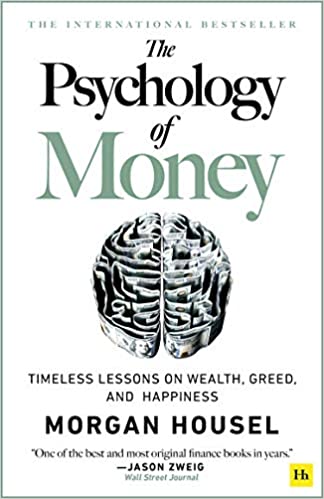This post is part of the 📖 The Psychology of Money series.
Today, I am reading second chapter Never Enough from the book The Psychology of Money: Timeless lessons on wealth, greed, and happiness written by Author, Morgan Housel.
Doing well with money isn’t necessarily about what you know. It’s about how you behave. And behavior is hard to teach, even to really smart people.
In The Psychology of Money, award-winning author Morgan Housel shares 19 short stories exploring the strange ways people think about money and teaches you how to make better sense of one of life’s most important topics.
Yesterday, I read the second short story Luck & Risk from the book The Psychology of Money.
Never Enough
Never Enough: When rich people do crazy things
There is no reason to risk what you have and need for what you don’t have and don’t need.
The hardest financial skill is getting the goalpost to stop moving.
Social comparison is the problem here.
“Enough” is not too little.
The idea of having “enough” might look like conservatism, leaving opportunity and potential on the table. I don’t think that’s right. “Enough” is realizing that the opposite—an insatiable appetite.
There are many things never worth risking, no matter the potential gain.
Reputation is invaluable.
Freedom and independence are invaluable.
Family and friends are invaluable.
Being loved by those who you want to love is invaluable.
Happiness is invaluable. And your best shot at keeping these things is knowing when it’s time to stop taking risks that might harm them—knowing when you have enough.
The good news is that the most powerful tool for building enough is remarkably simple and doesn’t require taking risks to damage any of these things.
That’s it for today. Tomorrow, we will read a new chapter Confounding Compounding, look at the stories of two men who pushed their luck.
No One’s Crazy
Every decision people make with money is justified by taking the information they have at the moment and plugging it into their unique mental model of how the world works.
Luck & Risk
Nothing is as good or as bad as it seems. More important is that as much as we recognize the role of luck in success, the role of risk means we should forgive ourselves and leave room for understanding when judging failures.
Never Enough
There are many things never worth risking, no matter the potential gain. Knowing when you have “enough” is an invaluable skill. Building a sense for “enough” is remarkably simple: Stop taking risks that might harm your reputation, family, freedom and independence.
Don’t forget that being loved by those “whom you want to love” is invaluable than risking everything for money.
Author(s): Morgan Housel
Part 4 of 23 in the 📖 The Psychology of Money book series.
Series Start | The Psychology of Money: Timeless lessons on wealth, greed, and happiness - Day 3 | The Psychology of Money: Timeless lessons on wealth, greed, and happiness - Day 5
